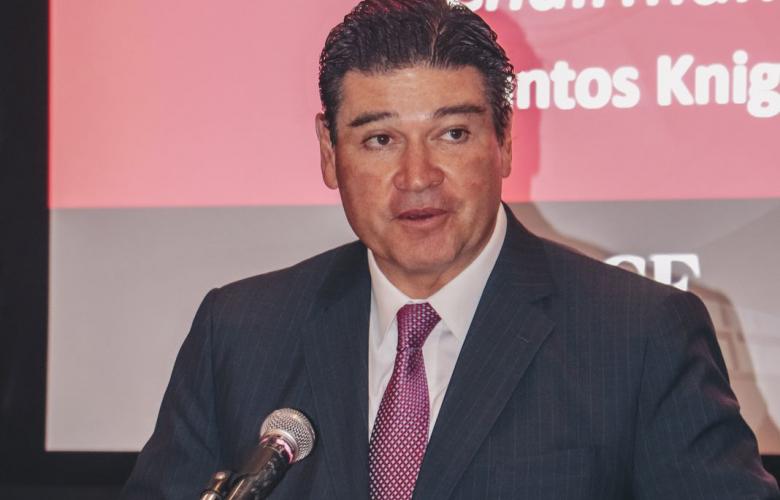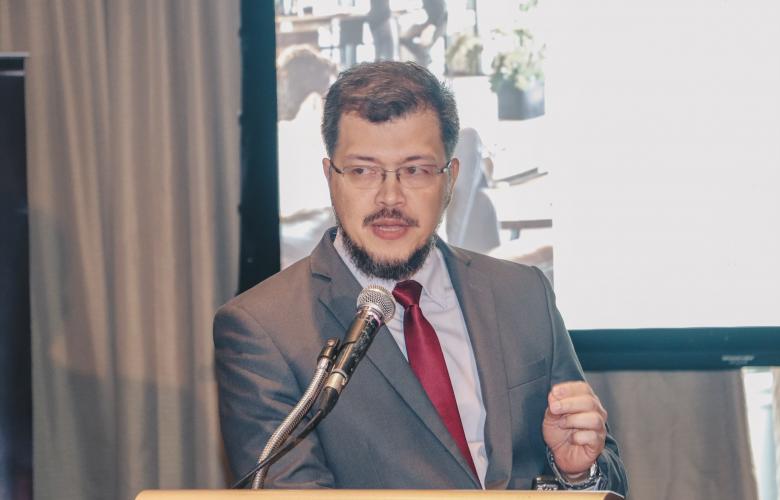As 2018 draws towards a close it is time to reflect on a year that was and prepare for the year to come in 2019.
Rick Santos, Chairman, and CEO – Santos Knight Frank told WILLIAMS MEDIA “Infrastructure challenges and congestion have helped accelerate gentrification on the fringes of the central business districts. As property prices within Metro Manila surge and the supply of land become limited, investors and developers are looking to regional areas such as Metro Cebu, Davao, Iloilo, Bacolod and the Manila North Corridor that includes Bulacan and Pampanga – reflecting a global trend.”
Santos and his team have reported 5 trends that defined Philippine real estate in 2018.
1. Investments from East Asia
Latest data from the BSP revealed that Foreign Direct Investments grew by 31% during the first 8 months of the year, spurring activities in real estate, manufacturing and other sectors. Equity capital infusions from Japan, Hong Kong and China were among the drivers of FDI during the year, taking advantage of the Philippines’ strong macroeconomic fundamentals and the government’s push on infrastructure.
Jason Abraham, Senior Director of Occupier Services & Commercial Agency at Santos Knight Frank says: “New entrants from China have continued to expand in the office market in Manila, Cebu and even Clark. We estimate that these companies have taken up as much as 170,000 sqm from January to September across Metro Manila, which is roughly a third of the annual take up of the metropolis’ office market.
That sector also drove up residential prices in the Bay Area, which already has the highest average selling price per square meter in Metro Manila.”
2. BPO expansion in the regions
In a survey conducted by Santos Knight Frank and the I.T. & Business Process Association of the Philippines (IBPAP) in October, 14% of respondents said they plan to expand in Clark and another 14% in Iloilo, while others mentioned Davao and Cebu.
The survey further revealed that infrastructure remains the primary factor affecting choice of location. Other considerations include population size, tax perks and holidays, number and reputation of educational institutions and good political climate.
Joey Radovan, Vice Chairman and Head of Occupier Services & Commercial Agency at Santos Knight Frank says, “This year we saw a number of outsourcing companies venture outside of Manila into areas such as Cebu, Iloilo, Davao, Bacolod and the Metro Manila North Corridor including Bulacan and Pampanga – areas with outstanding talent pools and strong infrastructure. We expect this trend to grow only stronger in the coming years as the government’s ‘Build, Build, Build’ program improves connectivity in the regions.”
“Manila’s office market remains strong and vibrant. In the fourth quarter, with about 1.2 million square meters of office space expected to come online. Despite this, vacancy rates remain low and lease rates continue to increase."
3. Rise of collaboration: co-working, co-living and pop-ups
At least two-thirds of global corporates plan to increase their utilization of co-working spaces. Meanwhile, 80% expect to grow the amount of collaborative space over the next three years, according to (Y)OUR SPACE, a new report by Knight Frank on workspace occupier solutions.
Francis Goño, Director of Occupier Services & Commercial Agency at Santos Knight Frank says, “Over the last couple of years, Manila has seen a tremendous growth in the co-working space. Now more than 110 co-working and shared office locations are operational, driven primarily by the need for flexibility.”

Francis Goño, Director of Occupier Services & Commercial Agency at Santos Knight Frank
Collaborative spaces are also seen in the residential and retail front. Co-living spaces and condormitels, such as GRID by First Georgetown Ventures, have been introduced to the market this year. Malls have also been more open to pop-up concept stores, which share retail spaces, as a way to accommodate smaller, artisanal and community vendors.
Alvin Fernandez, Senior Director of Investment & Capital Markets at Santos Knight Frank says, “We expect co-living spaces in Makati to triple in the next two to three years, serving as a middle ground for an untapped market looking for more comfort and amenities over the traditional dormitory and at a cost more affordable than a residential condominium.
4. More room for growth in tourism
While foreign tourist arrivals have grown by 9.5% to 5.3 million by the third quarter, domestic travel – around 60 million trips annually – is also driving greater investment into the tourism and hotel industry. Santos Knight Frank estimates that Manila’s 20,800 hotel rooms will expand by an additional 33% in the next five years.
Kash Salvador, Associate Director for Investment & Capital Markets at Santos Knight Frank says, “The rehabilitation of Boracay has put greater emphasis on sustainable tourism and promoted other emerging alternative locations, such as Palawan, Siargao, and Bohol. We expect more international hotel brands to operate around the country, especially in key cities such as Cebu, Bacolod, and Davao. We see an increase in connectivity and infrastructure in the country which will drive the tourism industry.”
5. Retail driving logistics
The logistics sector has benefited from the booming e-commerce industry and continued growth of traditional retail.
Calvin Javiniar, Senior Director for Investment & Capital Markets at Santos Knight Frank says, “Warehousing and storage in city centers is becoming more important nowadays. Consumer demands have been increasing and companies need to address delivery schedules against increasing traffic congestion. In addition, we’re also seeing the popularity of ‘Last-mile logistics’, increasing the number of smaller warehouses within cities to connect larger distribution centers with customers in urban areas.”
For more information about the Manila property market and current trends email Rick Santos, Chairman, and CEO – Santos Knight Frank via the contact details below
Similar to this:
The rise of flexible workspace in Penang, Johor and Kota Kinabalu
Get to know Rick Santos, Chairman, and CEO – Santos Knight Frank
Manila to see strongest prime office rental growth in Asia Pacific












